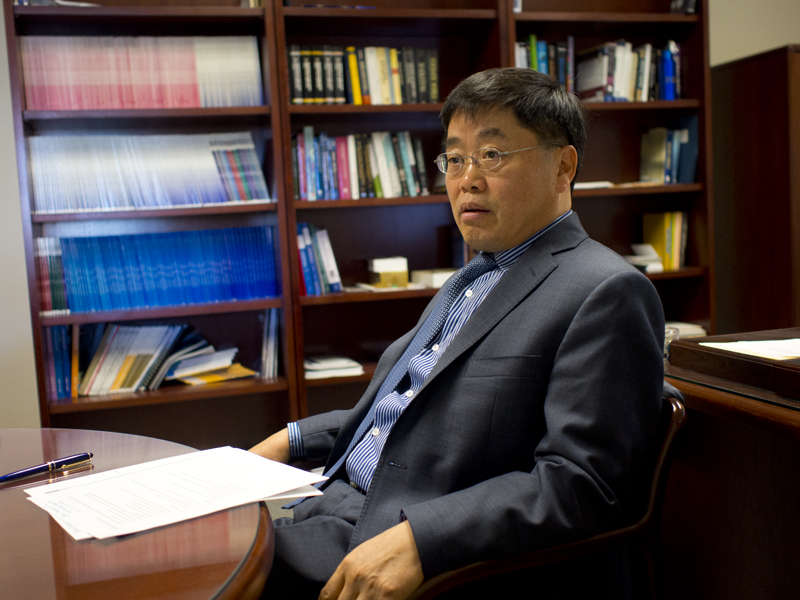
When Yunzeng Wang received the call informing him that he had been named the permanent dean of the School of Business Administration (SoBA) last month, he admitted that he was not fully prepared to hear the news.
“At that point, I was enjoying my research and my teaching,” he said. “(It was) something that happened in a short period of time … but (our administration) also had a great opportunity.”
It was an opportunity, the former interim dean of SoBA said, that came with its share of challenges. Among these were alarming budget cuts, “staggering” enrollment rates and small faculty size. To add to that, the school was also attempting to become re-accredited by the Association to Advance Collegiate Schools of Business (AACSB), a membership organization for business schools which reviews a college’s ability to provide quality education.
“The school had some problems and was in a challenging situation,” he admitted, but added, “I worked with faculty, students and central administration and we set up a plan. Initially, we needed to take on the AACSB situation … We had to see where we are lacking in terms of shortage of faculty and class size.”
According to Wang, AACSB accreditation was a big initial first step, given that the accreditation of a college is considered to “ensure students and parents that the business school is providing a top-quality education.” And despite Wang’s fear that reaccreditation was not “in the college’s favor,” SoBA ultimately did earn reaccreditation from the AACSB, completing one of Wang’s principal priorities.
With that, Wang will shift his attention to other issues plaguing the school, including dreaded budget cuts and faculty size.
“We’re working closely with the campus to allow us to increase the faculty size,” he said, explaining that the college has already added eight new faculty members. The new dean raised concerns over some of the financial straits that have become a burden to the progress of the college, however. “Budget cuts is a major problem,” he said.
Over the years, the SoBA budget has steadily decreased. In the span of three years, the permanent budget of the School of Business Administration fell from $11,105,580 in 2010 to $9,596,509 in 2013. The numbers are based on figures released by the UCR Office of Resource Planning and Budget.
Funds have been a serious topic of concern at the business school before. Wang’s predecessor David Stewart also combated the financial difficulties, but with vastly different results. In 2011, Stewart was relieved of his duties after a series of disagreements with the university regarding funds to the school. In 2013, Stewart announced that he was suing the university for allegedly “misallocating funds and misusing professional degree fees” of students.
On the subject, Wang responded, “I cannot comment with what happened with the former dean, but … when I took the role (of dean), I took the opportunity to work with the faculty and administration,” said Wang, assuring that his relationship with UCR officials is a productive one.
“I’m here to build a top-ranked business school,” he concluded.
Wang has been a member of SoBA since being hired in 2008. In 2011, he became the college’s interim dean and was officially named the permanent dean on Jan. 31, 2014.








